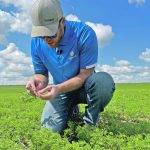With lentil acreages expected to be up this year, getting on top of any anthracnose infestation early and with the latest tools should be top of mind for producers, says Kate Hadley, a marketing agronomist with Bayer. “Lentil acres are going to be up over last year,” Hadley said. “It seems like everyone’s seeding some […] Read more
Pulses

New products and old practices recommended
Improved moisture this year means growers may need to dust off practices and products they haven’t used in a while
Recent rain has increased the need for pulse producers to get re-accustomed to disease management practices used in a season with adequate or high moisture that may have been set aside in recent dry years. “Moisture continues to be top of mind as a concern, but these spring rains definitely have been helping,” said Lori […] Read more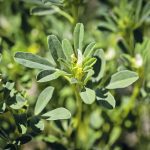
First new fenugreek varieties in decades in the works
WINNIPEG — It’s been more than two decades since a new fenugreek variety was released in Western Canada. So, over the last while, most fenugreek growers have relied upon a single variety of the pulse crop. To add to the genetic pool, scientists with Agriculture Canada in Saskatoon are developing new varieties for the small […] Read more

Aphanomyces soil test gets refined
A still-developing test to tell producers how bad the aphanomyces spore load is in their fields is gaining polish, thanks to more farmers across Canada sending in samples. Knowing the spore load of a field could be a powerful planning tool. The soil-borne disease has a reputation for being both hard to manage and long-lived. […] Read more
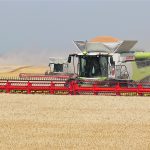
Keep It Clean urges caution with product use
Glacier FarmMedia – It’s nearly impossible for farmers to stay on top of the varied regulations set by various countries where their grain may be destined. Fortunately, Canadian farmers have an easy-to-follow tool to help them navigate these murky waters. “What we produce here in Canada far exceeds our domestic demand, so we need to […] Read more

Farmland prices diverge at the border
WINNIPEG — For certain things in agriculture, such as laws, regulations and income support for farmers, the border between Canada and the United States does matter. But for other things, it doesn’t. Related stories: The type of soil and growing conditions on grain farms in southeastern Saskatchewan should be comparable to farms in northwestern North […] Read more

New focus called gov’t blind spot
Difficulties have been reported finding matching federal funding for research projects that address significant problems in crop production
OTTAWA — The federal government is like a cyclops with a giant blind spot when it comes to research funding, farm organizations, researchers and the agriculture industry have found. Agronomic crop research is a key way to improve agricultural sustainability and reduce carbon emissions but if such research isn’t related to climate change, the government […] Read more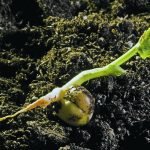
A last check before putting seed down
Certified seed guarantees varietal purity, but specialists recommend testing all seed for germination, vigour and disease
Does certified seed mean guaranteed seed? Not necessarily, says a seed testing expert. Certified seed goes through a battery of tests to ensure vigour, germination and disease-free status, but every seed – certified or not – should be tested for the basics before it goes in the ground, says the lab manager of an Alberta […] Read more
Kochia in pulse crops a growing concern
Concerns about the spread of kochia continue to grow for Saskatchewan pulse growers. Michael Brown, agronomy manager for Saskatchewan Pulse Growers, and Martin Carr, agronomy manager for WinField United, have seen the pesky tumbleweed spread throughout Saskatchewan, Alberta and the United States. The weed is resistant to some herbicides, among them groups 4, 9 and […] Read more
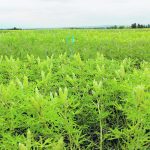
It may be a little early to consider lupins
The pulse offers natural resistance to root rot, but agronomic, yield and weed control options limit their potential
With their natural resistance to aphanomyces root rot, lupins may seem like a no-brainer pulse to plant. But hold on, says Robyne Davidson, a pulse specialist with Lakeland College in Vermilion, Alta. Having worked with them since 2004, she says lupins are not ready for prime time and should only be seeded under special circumstances. […] Read more
